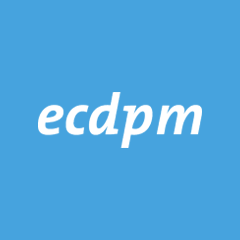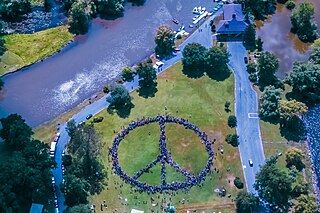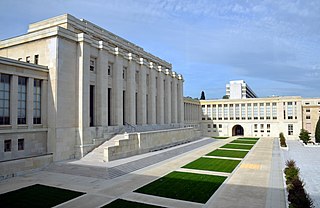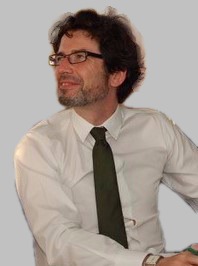
The United Nations University (UNU) is the think tank and academic arm of the United Nations. Headquartered in Shibuya, Tokyo, Japan, with diplomatic status as a UN institution, its mission is to help resolve global issues related to human development and welfare through collaborative research and education.

A think tank, or policy institute, is a research institute that performs research and advocacy concerning topics such as social policy, political strategy, economics, military, technology, and culture. Most think tanks are non-governmental organizations, but some are semi-autonomous agencies within government, and some are associated with particular political parties, businesses or the military. Think tanks are often funded by individual donations, with many also accepting government grants.

The Common Foreign and Security Policy (CFSP) is the organised, agreed foreign policy of the European Union (EU) for mainly security and defence diplomacy and actions. CFSP deals only with a specific part of the EU's external relations, which domains include mainly Trade and Commercial Policy and other areas such as funding to third countries, etc. Decisions require unanimity among member states in the Council of the European Union, but once agreed, certain aspects can be further decided by qualified majority voting. Foreign policy is chaired and represented by the EU's High Representative, currently Josep Borrell.
The Deutsche Gesellschaft für Internationale Zusammenarbeit (GIZ) GmbH, often simply shortened to GIZ, is the main German development agency. It is headquartered in Bonn and Eschborn and provides services in the field of international development cooperation and international education work. The organization's self-declared goal is to deliver effective solutions that offer people better prospects and sustainably improve their living conditions.
Multi-level governance is a term used to describe the way power is spread vertically between levels of government and horizontally across multiple quasi-government and non-governmental organizations and actors. This situation develops because countries have multiple levels of government including local, regional, state, national or federal, and many other organisations with interests in policy decisions and outcomes. International governance operates based on multi-level governance principles. Multi-level governance can be distinguished from multi-level government which is when different levels of government share or transfer responsibility amongst each other. Whereas multi-level governance analyses the relationship of different state levels and interaction with different types of actors.'

The European Centre for Development Policy Management, more commonly known as ECDPM, is a think tank founded in 1986. It is headquartered in Maastricht, Netherlands and has a second office in Brussels, Belgium.

Peacebuilding is an activity that aims to resolve injustice in nonviolent ways and to transform the cultural and structural conditions that generate deadly or destructive conflict. It revolves around developing constructive personal, group, and political relationships across ethnic, religious, class, national, and racial boundaries. The process includes violence prevention; conflict management, resolution, or transformation; and post-conflict reconciliation or trauma healing before, during, and after any given case of violence.

The European University Institute (EUI) is an international postgraduate and post-doctoral research-intensive university and an intergovernmental organisation with juridical personality, established by its founding member states to contribute to cultural and scientific development in the social sciences, in a European perspective. Its main campus is located in the hills above Florence in Fiesole, Italy.
The United Nations Interregional Crime and Justice Research Institute (UNICRI) is one of the five United Nations Research and Training Institutes. The institute was founded in 1968 to assist the international community in formulating and implementing improved policies in the field of crime prevention and criminal justice. Its work currently focuses on Goal 16 of the 2030 Agenda for Sustainable Development, that is centred on promoting peaceful, just and inclusive societies, free from crime and violence.

An international organization, also known as an intergovernmental organization or an international institution, is an organization that is established by a treaty or other type of instrument governed by international law and possesses its own legal personality, such as the United Nations, the World Health Organization, International Union for Conservation of Nature, and NATO. International organizations are composed of primarily member states, but may also include other entities, such as other international organizations, firms, and nongovernmental organizations. Additionally, entities may hold observer status. An alternative definition is that an international organization is a stable set of norms and rules meant to govern the behavior of states and other actors in the international system.

Alan Claude Doss is a British international civil servant who has spent his entire professional life in the service of the United Nations, working on peacekeeping, development and humanitarian assignments in Africa, Asia and Europe as well as at United Nations Headquarters in New York City.

The United Nations University Institute on Comparative Regional Integration Studies (UNU-CRIS) is a Research and Training Institute of the United Nations University (UNU). Based in Bruges, Belgium since 2001, UNU-CRIS specializes in the comparative study of regional integration and the provision of global and regional public goods, including environmental stability, poverty reduction, peace, and justice.

The European Union (EU) has permanent observer status at the United Nations (UN) since 1974, and gained enhanced participation rights in 2011. The EU itself does not have voting rights but it is represented alongside its 27 members, one of which, France, is a permanent member of the Security Council.
The International Centre for Policy Studies (ICPS) is an independent NGO, founded in 1994 which aims to promote public policy concepts and practice and apply them to influential policy research that affects both the public and private sectors in Ukraine.
The International Centre for Counter-Terrorism (ICCT) is an independent think-and-do tank providing multidisciplinary policy advice and practical support focused on prevention, the rule of law and current and emerging threats three important parts of effective counter-terrorism work. ICCT's work focuses on themes at the intersection of countering violent extremism and criminal justice sector responses, as well as human rights related aspects of counter-terrorism. The major project areas concern countering violent extremism, rule of law, foreign fighters, country and regional analysis, rehabilitation, civil society engagement and victims' voices.
The Institute for Security Studies, also known as ISS or ISS Africa, described itself as follows: "an African organisation which aims to enhance human security on the continent. It does independent and authoritative research, provides expert policy analysis and advice, and delivers practical training and technical assistance." Their areas of research include transnational crimes, migration, maritime security, development, peacekeeping, peacebuilding, crime prevention, criminal justice, conflict analysis and governance. It is the largest independent research institute in Africa dealing with human security and is headquartered in Pretoria, South Africa, with offices in Kenya, Ethiopia and Senegal. In 2019, it was ranked 116th by the Global Go To Think Tanks Report and 55th among think tanks outside the United States.

The Geneva Water Hub is a water research and policy institute headquartered in Geneva, Switzerland. Established by the Swiss Confederation and the University of Geneva it focuses on hydro-diplomacy to prevent and resolve water-related conflicts, conducts water related research, runs education courses and is a think-tank on global water governance and its challenges.

Luis Peral was a Spanish academic, analyst and facilitator who specialised in international law, human rights, international humanitarian law, forced migration, peacekeeping and peace-building, conflict analysis and private diplomacy.













